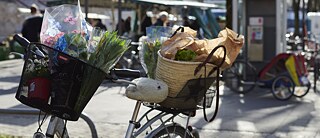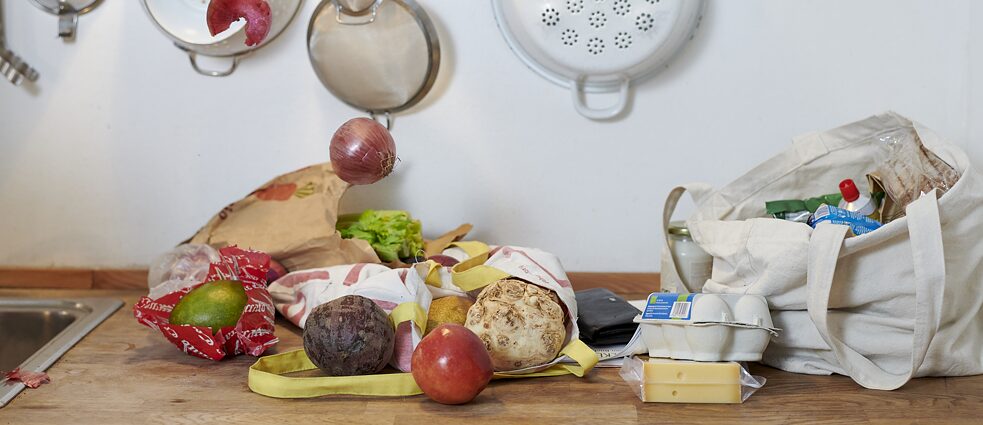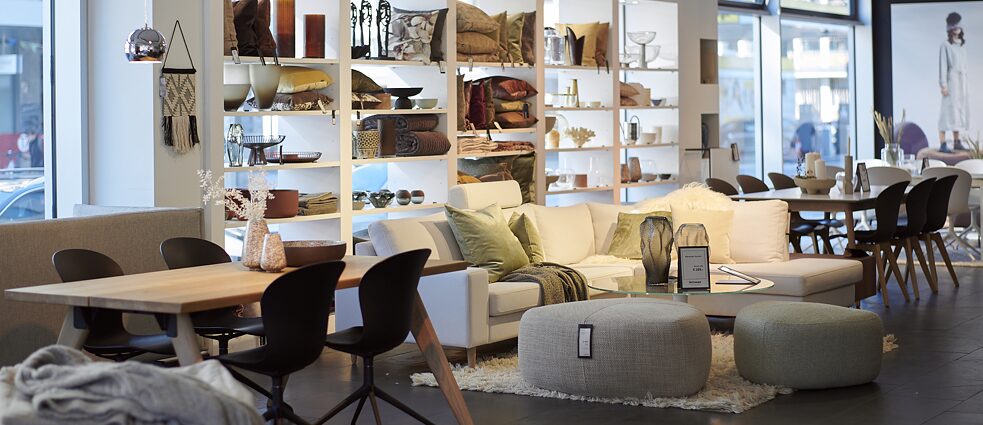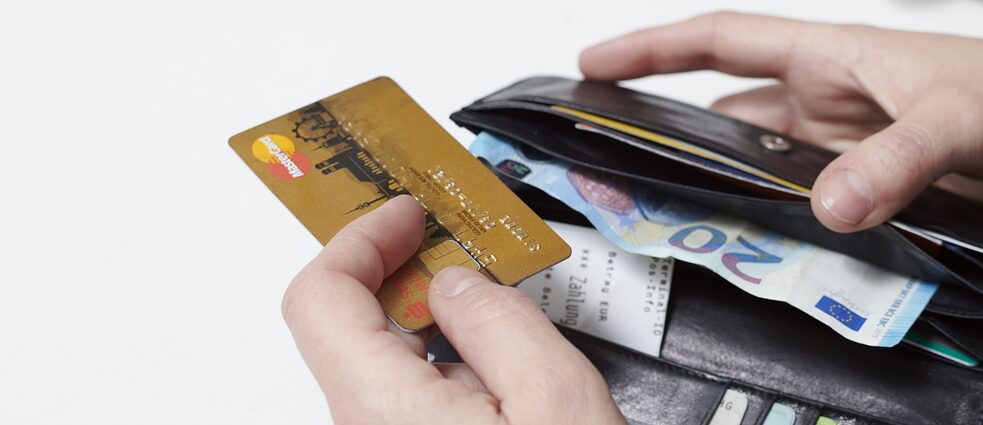
Shops for everyday items
There are supermarkets in all towns in Germany, and also in some villages. You can get many key items to cover your daily needs here: bread and meat, yoghurt and chocolate, household cleaners and toilet paper. Supermarkets are normally open from 7am until at least 8pm. Do you want to buy really fresh food? Many towns have a weekly market once or twice a week. It is often on a Saturday. At the weekly market you can buy fresh fruit, vegetables and regional specialities. You can find fresh meat and cold meats at the butcher’s (Fleischerei; known as Metzgerei in Southern Germany). You can buy fresh bread in bakeries. Some bakeries, butchers and other small shops close for lunch. They are usually only open until 6 or 6.30pm in the evening. The weekly markets normally run from early morning until afternoon. All shops are closed on Sundays.
Delivery service
If you don’t want to leave your home to shop, you can use a delivery service: you ring up the delivery service or fill out a form on the internet. Then someone will bring your pizza or mineral water for instance to your house. However this service costs more than buying the goods in the shop. Many villages have no shops, but mobile tradesmen travel there on a regular basis. They sell groceries and other everyday items.
Specialist shops and the internet
If you want to buy a cupboard, computer or a pair of shoes for instance, you can go to a department store or a specialist shop. Department stores stock a large variety of products. Department stores are mainly in towns. Specialist shops specialise in particular products. For example there are furniture stores, electronics outlets or shoe shops. Opening times are mostly from 9am to 8pm, but sometimes only until 6.30pm.
Nowadays you can also find many things on the internet. Usually you only have to wait a few days before the products are delivered to your home.
Paying
In Germany various methods of payment are commonly used. You can pay with cash everywhere. If you have an account with a high street bank or savings bank (Sparkasse), you will be issued an EC debit card and often a credit card (MasterCard or Visa) as well. In some supermarkets, department stores and specialist shops you can pay with your credit card.
On the internet you pay by credit card, but also by direct debit or invoice. If you want to pay by direct debit, you have to enter your account details online. The money will then be taken from your account. If you are invoiced, you transfer the money from your account.
Prices, warranty and exchanging goods
In most shops in Germany there are fixed prices for all products. Sometimes you can negotiate at the market or where large sums in specialist shops are concerned. But haggling is not usually the norm.
Have you bought something that is faulty? Then you have 2 years in which you can claim under statutory guarantee: you will be given a new product. Or you return the faulty product and your money will be refunded. Or you will have to pay less. Sometimes products are also covered by warranty. If the product, for instance a television, breaks during the guarantee period, it is repaired free of charge. Or you will be given a new television. Some shops also offer the facility to exchange: if you don’t like the product, you can return it. Your money will then be refunded. On the internet or in larger shops and department stores it is usually possible to exchange goods within 14 days. For this you need to show the receipt or invoice. It is often not possible to exchange goods on special offer.
Video International Sign

Frequently asked questions
Further questions? Write us via the contact form. We will forward your questions anonymously to the advisors of the youth migration services.
Contact form





